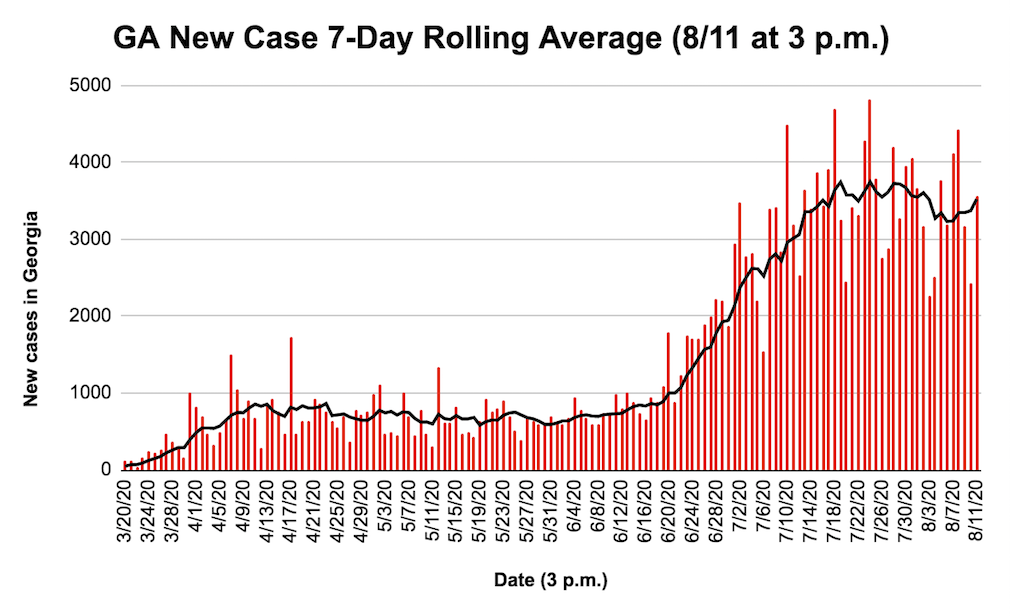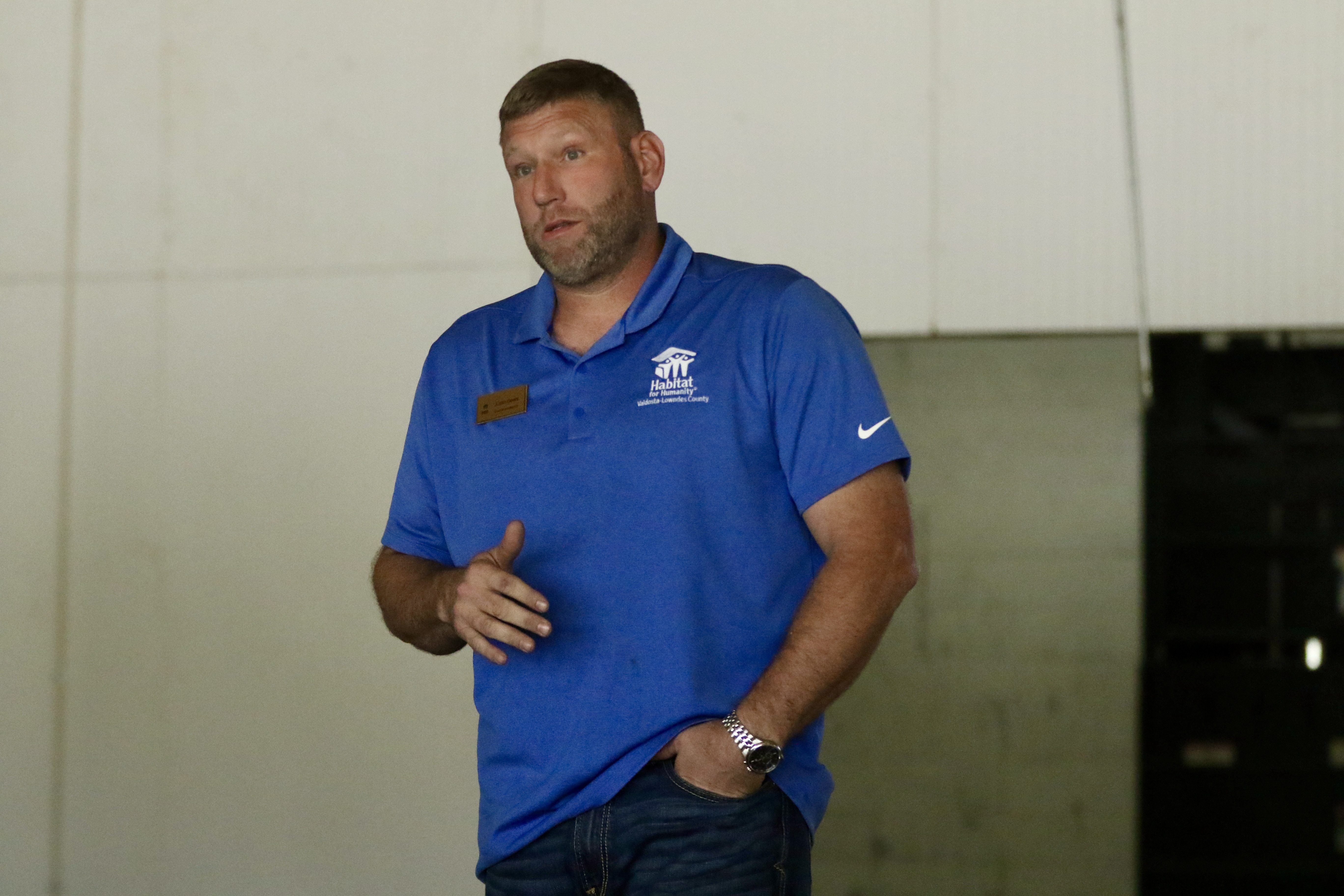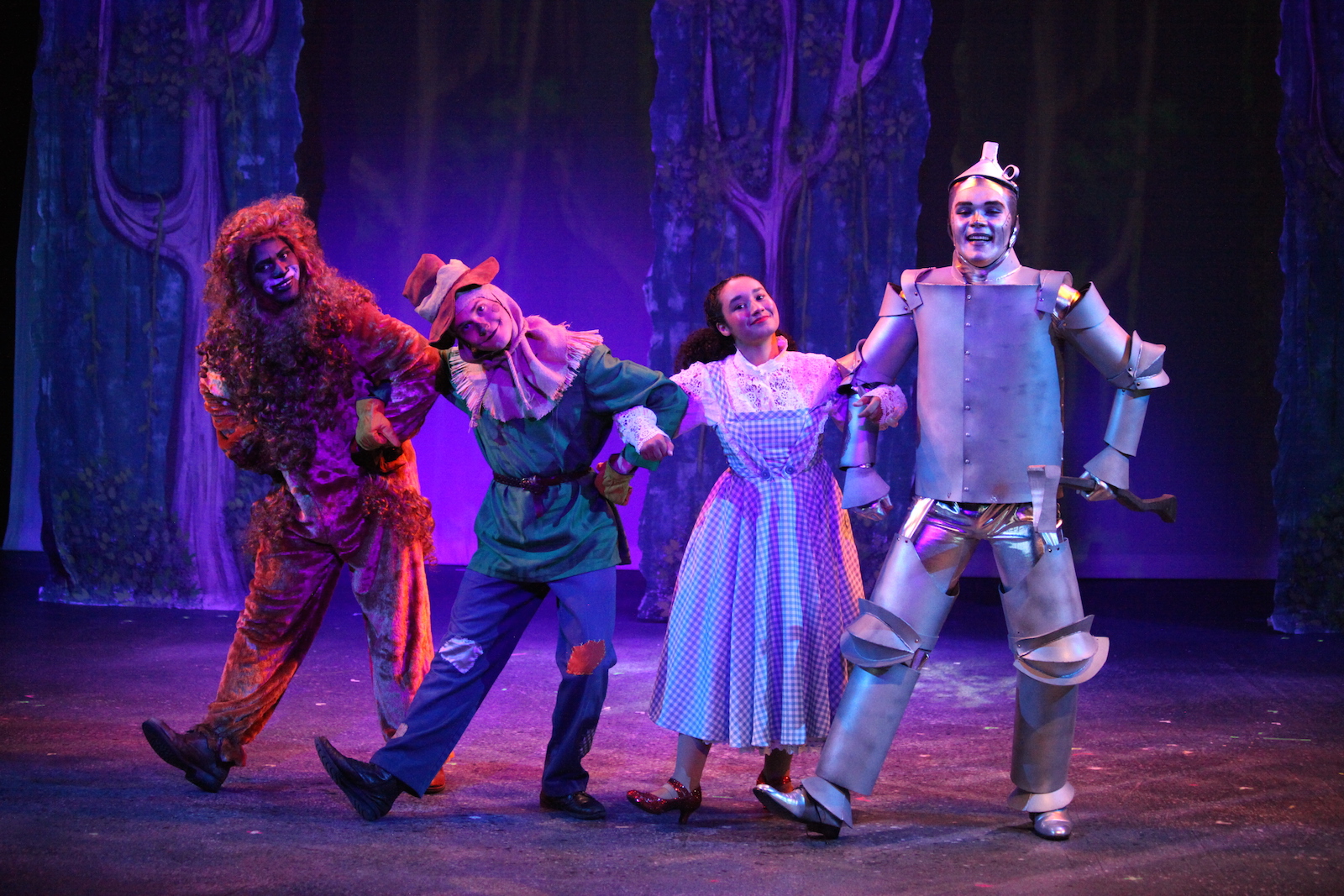Georgia schools move forward with reopening despite COVID-19 outbreaks
Published 10:22 am Wednesday, August 12, 2020

- Source: The Valdosta Daily Times COVID-19 Database
ATLANTA – Georgia has moved forward with an in-person start to the academic year despite some schools opening then quickly closing because of COVID-19 outbreaks.
A photo from North Paulding High School in Dallas went viral this month that showed a hallway crowded with students — but very few wearing masks. The photo landed one student suspended but the punishment was overturned by the principal not long after the school made national headlines.
Georgia State Superintendent Richard Woods addressed questions regarding hallway transitions and class changes shortly after the photo began to circulate and criticism against in-person instruction began to climb.
“Our reopening guidelines developed in partnership with the Georgia Department of Public Health lay out strategies schools can use to limit the number of students congregating during transitions, including staggered class changes and hallway flow paths,” Woods said. “While these are recommendations and not mandates, we do strongly suggest that schools consider implementing these strategies.”
Woods added that face masks are not mandated but “strongly suggested.” Georgia’s chief education official said — speaking to the ramifications for students who posted photos in Dallas — that students and staff should not be “penalized for expressing their concerns.”
Within days of the photo being released, North Paulding High School shuttered its doors for cleaning after the district superintendent said multiple COVID-19 cases were detected within the high school.
Brian Otott, superintendent of Paulding County School District, said the school system had consulted with the Department of Public Health on the decision to temporarily switch to a virtual learning model.
This was not the only case of a school closing its doors after initially welcoming students back to classrooms at the beginning of the month. Cherokee County school district announced it would close two of its six high schools after more than 1,150 students and 37 staff are now in quarantine after possible exposure to the virus.
Georgia Gov. Brian Kemp stood behind his decision against mandating masks in schools during a press conference with U.S. Surgeon General Jerome Adams.
“We’ve given the responsibility to the schools and to the local superintendent,” he said. “Like most things in education, I’m a firm believer that the local governments know their school better than the state government does. We’ve been handling things that way for a long time.”
Kemp said the reopening for many of Georgia’s schools this month went well, despite the photo that made national headlines.
But critics pointed out that Kemp gave school districts local control over whether or not to mandate masks but sought legal action against cities and counties that implemented their own mask ordinances.
Adams said the North Georgia school responded to positive cases in the best way possible because there was a plan in place.
“I’m confident the superintendents have the tools, the resources and the masks that we have given them — as far as the state’s concerned — to be able to handle (cases) at the local level,” he said.
When the decision to first close schools due to the growing pandemic was first made by Kemp on March 17, there were less than 200 cases in the state of Georgia, according to a COVID-19 database created by The Valdosta Daily Times.
That number has continued to grow rapidly over the months and now sits at more than 226,000.
His decision to reopen schools has not been taken kindly by many. State Rep. Beth Moore, D-Peachtree Corners, said she has set up an email address where teachers and students can anonymously submit testimonials about conditions within their schools.
“Teachers and students across the state are experiencing unsafe conditions in their schools, but leadership hasn’t been listening, and often has been doubling down and making it worse,” she said. “Since Friday night, I’ve received hundreds of emails from teachers, students and parents who are terrified.”
The Associated Press, Riley Bunch and Chris Herbert contributed to this report.





